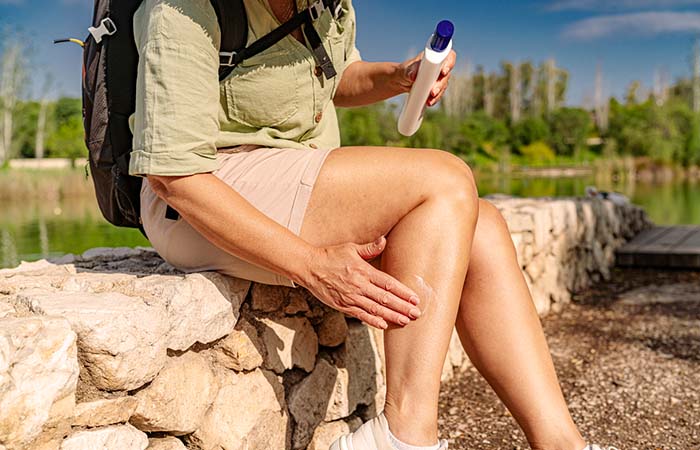Running a travel health service
In Running Your Business
Follow this topic
Bookmark
Record learning outcomes

Travel health represents a big opportunity for community pharmacy. Sarah Purcell gets the experts to answer your most important questions on the topic
Only four in 12 travel vaccines are available on the NHS and there are some 42 million trips taken abroad each year where travellers don’t seek health advice, says Graham Thoms, CEO at Pharmadoctor, which offers a Pharmacy Travel Clinic service package.
These statistics underline the opportunity for pharmacy teams to help their customers stay well and have an enjoyable holiday. Here is a rundown of some of the key considerations when advising the public on sun safety, insect bites and other common travellers’ complaints.
What are the key sun safety messages that pharmacists should be passing onto their customers?
“It’s the UV index that people need to be looking at rather than the time of year. Anything above UV index 3 and you can get burnt and should be protecting yourself. All the weather apps include UV index levels,” says Dr Rachel Abbott at the British Association of Dermatologists. The UV index is usually highest between 11am and 3pm.
Shade and clothing should be your first line of defence. “We always advocate using shade, clothing, hats and sunglasses as your first defence, and then sunscreen for any exposed skin. Lots of people mistakenly see sunscreen as the main way of protecting their skin from sun damage,” says Abbott.
The British College of Dermatology (BCD, the British Association of Dermatologist’s educational arm) has launched a series of online courses written for pharmacists, which includes sun safety. They are available from the BCD Education Hub (learning.bcd.org.uk/my/?categoryid=7)
Use sun safety measures at home as well as abroad. “Warmer weather and increasing UV levels in the UK mean we can no longer consider sunscreen as just for holidays. Cumulative sun exposure, even during day-to-day activities like sitting outside at lunch time, contribute to premature skin ageing and increase the risk of skin cancer. Many cases of skin cancer in the UK occur on areas that are regularly exposed without protection, such as face, ears and forearms,” says Dr Rakesh Anand, consultant dermatologist and British Skin Foundation spokesperson.
What advice can you give on choosing a sunscreen?
“We recommend a minimum SPF30 sunscreen for everyone that offers broad spectrum UVA and UVB protection. Lotions or cream formats are best. Sprays are not recommended for young children with asthma,” says Dr Abbott. UVA protection is indicated by a circle logo or a star rating – pick a minimum of 4 star.
Anand says: “Texture (cream, lotion etc) matters less than correct and sufficient application. Sprays can be convenient but are often under-applied and need to be rubbed in for full coverage.”A waterproof sunscreen is best, as this will also protect against sweating.
“Many people don’t apply enough sunscreen, and they don’t reapply either. Remind customers they also need to reapply sunscreen to their face too – a common mistake is to apply it at 7am and then not again for the rest of the day,” says Abbott.
How should I treat sunburn?
“For mild sunburn, pharmacists can recommend cool compresses, oral pain relief, and moisturisers or after-sun lotions with soothing ingredients like aloe vera. Staying hydrated is important. Avoid further sun exposure until the skin is healed. Patients should be referred to urgent care or a GP if they have severe sunburn with blistering, signs of heatstroke (eg confusion, nausea, fainting), or burns over a large body area, especially in children or elderly,” says Anand.
How should I advise customers on preventing insect bites?
Jacquie Lee, medication safety officer and information pharmacist at Numark, advises: “Wear protective clothing, such as long sleeves and trousers, especially in grassy or wooded areas. Use insect repellents containing DEET, Icaradin or lemon eucalyptus oil. Avoid strong scents such as perfumes, which can attract insects. Keep food and drinks covered when outdoors. Use nets or screens and keep windows and doors closed.”
Customers travelling to areas with mosquitoes should use air conditioning if available, as this deters them. If there is no air conditioning, use a mosquito net when sleeping. Plug-in insecticides can act as an extra deterrent.
“Patients can use the Pharmacy First service if they feel their insect bite may be infected,” says Lee. If it is 48 hours since the insect bite and is infected, they can be supplied with an antibiotic. If the bite occurred abroad or was caused by an unusual insect, further medical advice may be necessary. In cases of suspected anaphylaxis, contact emergency services immediately.”
What should a travel first aid kit contain?
Basic first aid items: Plasters, sterile gauze pads and tape, elastic bandage, sterile wound dressings, antiseptic wipes or solution, saline sachets, scissors and tweezers, disposable gloves, hand sanitiser, thermometer.
Medications: Analgesics, antihistamines, anti-diarrhoeals, oral rehydration salts, indigestion relief, motion sickness tablets, insect bite cream, antiseptic cream.
What if I want to set up a travel health service?
“You will need to complete some training. We recommend the travel health online course NEVA (neva-training.com/uk/#/login)to all our partner pharmacies who want to offer our travel clinic service. It is free for all healthcare professionals and provides an ongoing resource,” says Thoms. “The main consideration is to carve out the time and resources to run the service.”
The Pharmadoctor Travel Clinic service costs £799 a year, plus the cost of vaccines. “Pharmacists get a free listing and referrals on our website, and we encourage them to set up their own website to promote their travel clinic. They should also tell local GPs and travel agents about their service,” he says.
“As well as wider use of your clinical skills, you can also increase revenue, with profitability of around 50 per cent after the cost of vaccines. You will also increase customer footfall.”
